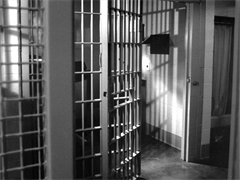Senate Republicans Push for Extension of Invest in Kids Act
Senator McConchie, along with the Senate Republican Caucus, proudly continued our efforts to support the nearly 10,000 children whose lives have been forever changed by the Invest in Kids Scholarship Program last week during the veto session. Hundreds of students and their families rallied at the Capitol during the veto session, pleading with lawmakers to keep the low-income scholarship program alive.
On Tuesday, Senate Republicans held a press conference calling on the Governor and his legislative allies to help save the Invest in Kids Scholarship program. They noted that instead of being focused on Illinois, Governor Pritzker was out of state in Florida, trying to increase his national profile by weighing in on federal issues.
Since the inception of the Invest in Kids program in 2017, more than $308 million in private donations have been made to a tax credit scholarship fund that has provided more than 38,000 scholarships to help low-income K-12 students in struggling schools optimize their chances for academic success by attending a school of their choice.
Because Gov. Pritzker refused to address the issue and the Senate Democrats took no action during the veto session, the Invest in Kids program is set to expire on Jan. 1, 2024, potentially forcing students to leave their current schools in the middle of the school year.
Senator McConchie helped negotiate the bill’s original passage and have been a vocal proponent for its renewal along with the entire Senate Republican Caucus and House Republican Caucus. Unfortunately, the rules in the General Assembly solely empower the Senate President, Don Harmon, and Speaker of the House, Chris Welch, to determine what bills get called for a vote. Springfield Democrats held the power as to the fate of the Invest in Kids Act and whether a bill was called for a vote. They refused, and the reason they refused is because they are completely beholden to the main group opposed to the Invest in Kids Act: the Chicago Teachers Union.
Senator McConchie said what they learned last week and through this process is who Springfield Democrats really care about. They are more concerned about appeasing special interest groups that fund their campaigns instead of standing up for low-income children crying out for a chance at a better future. Despite this setback, the Senate Republicans will continue our fight for the program during next year’s spring session. Check out a quick video from 2021 to learn more about this program and how it’s helped so many disadvantaged students attend the school of their choice.

Lawmakers Pass Bill Paving Way for Next Generation of Nuclear Reactors
State lawmakers took an essential step toward creating a more robust and reliable power supply for Illinois by passing legislation to end the moratorium on new nuclear reactor construction.
House Bill 2473 lifts the ban on next-generation nuclear reactors less than 300 MW beginning Jan. 1, 2026, allowing for the construction and development of next-generation Small Modular Reactors (SMRs). The Illinois Emergency Management Agency Office of Homeland Security will be directed to establish rules for reactor decommissioning, environmental monitoring, and emergency preparedness by Jan. 1, 2026. The Illinois Environmental Protection Agency will provide consultation.
House Bill 2473 also authorizes the Governor to commission a brand-new study to research the state’s role in guiding the development of new nuclear technology. It makes conforming statutory changes, including updating references to IEMA-OHS in preexisting Illinois law. Passed by the Senate with a 44-7 vote and by the House of Representatives with a 98-8 vote, House Bill 2473 will be sent to the Governor’s desk for consideration.

Senate Extends Law to Hold Repeat Gun Offenders: House Refuses to Take Action
Senator McConchie supported the act to extend a criminal penalty enhancement designed to keep more felons convicted of gun crimes behind bars and off the streets. House Bill 1440 was passed in the Senate by a 41-12 vote, but it appears to have stalled in the House of Representatives, which means the criminal penalty enhancement will be sunset at the end of this year.
The statute was initially passed at the request of law enforcement to help them keep violent repeat offenders and gang members behind bars. I believe that the partisan games used to kill the statute will make the state less safe by allowing violent gun criminals to be back on the streets sooner.
Your opinion matters.
What do you think about what happened or didn’t happen during this veto session? Click here to let Senator McConchie know.

